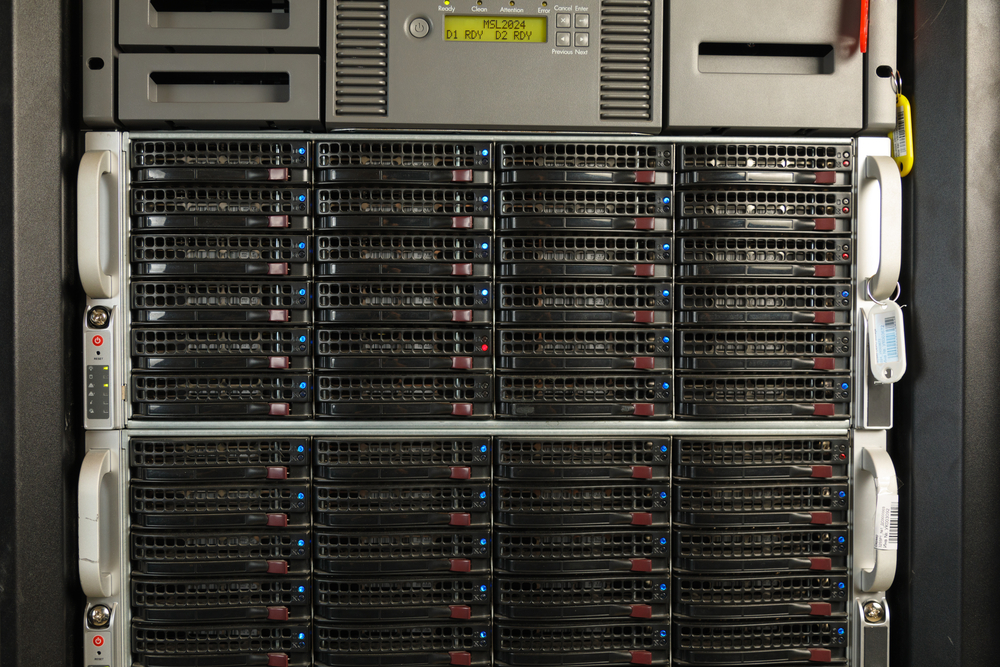This blog post is narrated by Murf.ai.
This entire video (including voice) was generated by Elai.io and is simply a narration of the blog.
As someone who’s logged well over a decade managing on-premises servers, databases, and intricate network topologies, I’ve seen the evolution of IT firsthand. I understand the comfort of having tangible control over the iron that runs your business. But the cloud… that’s a whole different realm. Yet, I’ve come to embrace its power, especially when it comes to the advantages and features of Cloud SQL for enterprise use.
Confessions of a Traditionalist
Let’s be honest, old habits die hard for us infrastructure folks.

We’re used to:
- Spec’ing Hardware: The meticulous selection of processors, memory, and storage to painstakingly optimize for a database workload.
- The Joy of Racking and Stacking: That satisfying moment of unboxing a shiny new server and sliding it gracefully into place.
- Wiring Diagrams as Art: Those intricately planned cable runs, color-coded for clarity in a beautiful dance of connectivity.
- DBA Handoffs: The sense of shared responsibility, where we own the hardware, and they own the database itself.
But, in this ever-evolving landscape, the writing’s on the wall; the cloud shift is undeniable. So began my deeper dive into Cloud SQL!
What exactly is Cloud SQL?
In a nutshell, Cloud SQL is a fully managed relational database service from Google Cloud. You get your choice of MySQL, PostgreSQL, or SQL Server – all operating in the powerful Google Cloud infrastructure. Crucially, it’s managed. Let’s break that down:
- No More Installations and Patches: Cloud SQL handles all the software setup, maintenance, and those inevitable security updates.
- Backups and Replication: Automated to ensure your data is safe and available, even in case of regional issues.
- Scaling That Breathes: Need more power? Cloud SQL can handle on-demand scaling, both up and down, to match your usage patterns.
So, Why Cloud SQL? A Veteran’s Perspective
Here’s where things get interesting. Here’s how Cloud SQL directly addresses common infrastructure challenges and translates into real-world benefits:
- From Outages to Uptime
- High Availability Out of the Box: Cloud SQL offers built-in multi-zone replication and automatic failover. This minimizes the type of hardware failures that might send you scrambling back to the data center at midnight.
- Global Reach Without the Headache: When customers or operations are globally distributed, Cloud SQL lets you spin up database instances across Google’s vast network of regions easily. No more shipping servers overseas or complex VPNs.
- Goodbye Performance Guesswork, Hello Predictability
- Right-Sizing Made Simple: Instead of agonizing over future-proofing your hardware specs, Cloud SQL allows you to start with what you need and incrementally add (or remove!) compute and storage resources with a few clicks.
- Performance Insights that Matter: Cloud SQL gives you deep visibility into query performance, bottlenecks, and usage trends. This allows you to make truly data-driven decisions for optimizing application performance.
- Security Blanket Included
- Automatic Security Updates: The steady stream of database vulnerabilities means constant vigilance – which Cloud SQL handles for you.
- Encryption At Rest and In-Transit: Your data is protected by default, addressing those compliance and regulatory checkboxes that enterprises stress over.
- IAM Integration: Cloud SQL seamlessly leverages Google Cloud’s robust Identity and Access Management (IAM) system, ensuring fine-grained control over who (and what) can access your precious data.
- DBA Harmony (Yes, It’s Possible)
- Control Without the Tedium: DBAs still retain administrative access through their familiar database tools. They can focus on schema optimization and query tuning instead of patching operating systems.
- Insights for Collaboration: Cloud SQL monitoring metrics help DBAs and infrastructure teams pinpoint bottlenecks collaboratively, fostering a true DevOps spirit.
- Training and Certification: Google even offers a Professional Cloud Database Engineer certification for career growth and training!
- TCO That Surprises (in a Good Way)
- Goodbye CAPEX, Hello OPEX: Eliminate those big upfront hardware purchases. Cloud SQL’s pay-as-you-go model helps align IT spending with actual business usage.
- The Hidden Cost of Expertise: Managing complex, self-hosted database setups requires specialized and often expensive database talent. Cloud SQL lets you redirect that focus to the core value of your business.
- Time is Money: The hours you might spend on capacity planning, upgrades, and troubleshooting can be better invested in innovation when working with a managed service like Cloud SQL.
The video from this post can also be seen on YouTube.





